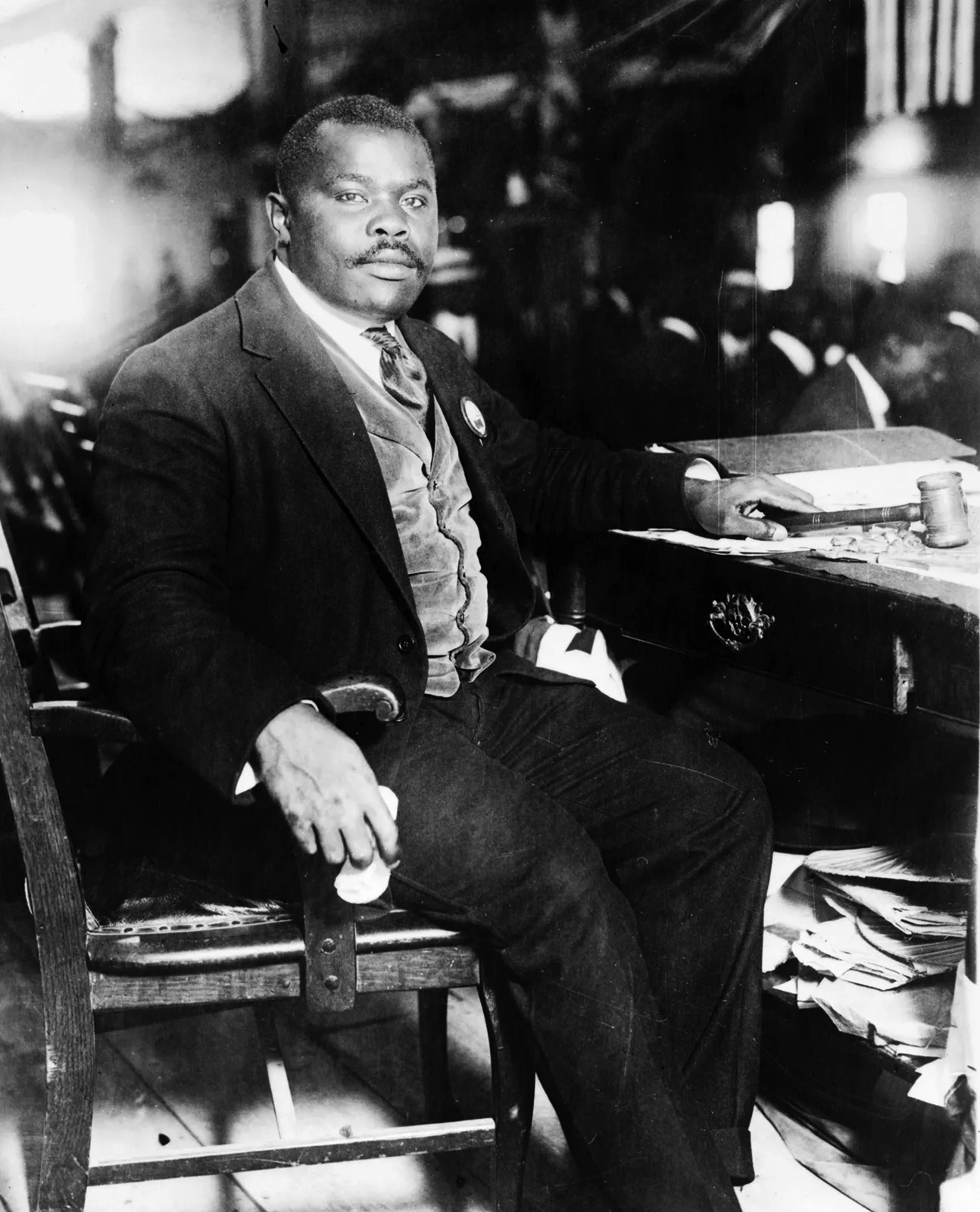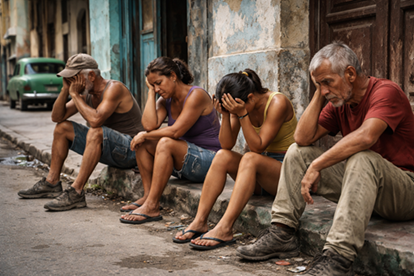
The Council Chamber of the Kingston and St Andrew Municipal Corporation is to be renamed in honour of Marcus Garvey on the anniversary of his birth, 137 years ago on August 17. In this presentation I discuss the justification for this civic recognition.
Garvey made important contributions to Harlem, New York and Kingston, Jamaica. Much has been documented about his work and that of the Universal Negro Improvement Association and African Communities League in Harlem, which was the headquarters of the movement and the location of its business enterprises, its newspapers, its real estate and its role as a political centre for global Pan-Africanism. By comparison, his impact on Kingston and St. Andrew has not been adequately grasped. Let me list the areas that must concern us:
Dr. Robert Love’s political impact on Marcus Garvey
Garvey acknowledged the debt he owed to Dr. Robert Love who campaigned for black political representation in Jamaica in the late 19th and early 20th century. Love’s campaign followed the political imposition of Crown colony rule after the suppression of the Morant War in which over 400 people were killed in 1865. Love’s amazing political struggle against white supremacy and anti-black racism is the subject of the excellent thesis by Dr. Joy Lumsden on his life and work in The Bahamas, the United States, Haiti, and Jamaica. He successfully campaigned for Alexander Dixon, who won a seat to the Legislative Council representing St. Elizabeth in the 1896 elections.
Love was himself elected as a member of the then Kingston City Council in 1903 and to the Legislative Council in 1906 with the support of the Jamaica Union of Teachers and he served until his death in 1914. He published a weekly newspaper, the Jamaica Advocate. He campaigned for Emancipation from chattel slavery to be marked every year and said that Britain owed Jamaica a debt for slavery. He also helped to establish the Pan-African Association of Jamaica. Love was the political mentor of Marcus Garvey. Garvey was therefore part of a political tradition that affirmed the rights of our people to effective political representation.
Winning seat to the KSAC while imprisoned
Garvey, then 42 years old, was elected in 1929 to the KSAC while serving three months in the St. Catherine District Prison for contempt of court for criticizing British injustice in Jamaica. As a result, he missed three sittings of the Council and was disqualified in a case in which Norman Manley represented the Crown. He was subsequently re-elected, unopposed, to the Council in 1930, and was re-elected in 1931 after new elections were called following investigations into corruption of a Councillor in the Kingston and St. Andrew Corporation. He served until 1934.
The structure of the KSAC included “eight Councillors, four being returned for the Urban District, two each for the Suburban and Rural Districts (Handbook of Jamaica 1932:352)” Garvey represented one of the Urban Wards which included Kingston Gardens and Allman Town. The Councillors were H.A.L. Simpson, OBE; W.N. Meeks; W.R. Durie; W.A. Dillon; T.N. Duval; E.M. McLaughlin; Marcus Garvey. At that time members of the Legislative Council sat on the KSAC. So, the Mayor was George Seymour Seymour who had defeated Garvey for the St. Andrew seat and the Hon A.E. Daosta, member of the Legislative Council for Kingston. The technical people were the Town Clerk, City Engineer, Superintendent for Roads and Works, Mechanical Engineer, Water Engineer, Medical Officers of Health for Kingston and St. Andrew, Inspectors of the Poor and others.
Garvey’s role in the KSAC
According to the minutes of the KSAC on March 14, 1930, Garvey moved a resolution, “That all male labourers employed to and working under the direction of or serving the interest of the Kingston and St. Andrew Corporation be paid a minimum in wages of not less than 4 shillings per day, and that all female labourers be paid at a minimum of not less than 2/6 pence per day as early as possible and this minimum shall not affect paying the said labourers by merit at rates above the minimum and that representation be made to the Legislative Council to increase the estimate accordingly.”
Garvey also called for the 8-hour day for all employees, labourers and workers of the KSAC. The resolutions were referred to the committee of Council. These ideas on behalf of working people had been core to the manifesto of his Peoples’ Political Party but were not to be on the legislative agenda until after political independence. These resolutions were part of a broader programme that included land reform, economic diversification of the Jamaican economy from its reliance on sugar and banana exports, the development of tourism, educational and health reform.
Corruption was a big issue in politics. There was a representative on the Council identified as YMCA which was the acronym for “You Must Come Across”.
The Councillor in question was one Louis Phillip Fernandez. Garvey’s resolution read: “In keeping with Rule 229 of the Law Governing the Corporation and in view of the convincing evidence submitted against Councillor Fernandez for accepting the sum of five pounds from one Yap Sam to exercise undue influence over the Council in the matter of opposing a building permit. Be it resolved that the same Councillor Fernandez be adjudged guilty of misconduct tending to bring the Council into discredit, and that he therefore be expelled from the Council for a period of thirty days…” A majority of Councillors supported the resolution. The Governor appointed a Commission of Enquiry. There was a suspension of Council and new elections were called. Fernandez lost his position on the KSAC.
There are issues Garvey raised relating to water. He gave notice to the City Engineer that he would be called upon to explain “why people in Johnson Pen are unable to receive water nevertheless the pipes are installed to their respective properties and are called upon to pay water rates according to the value of their property.”
Garvey demonstrated his compassion for a young man, George Rowe, who was cursing in the market. Justices of the Peace recommended that he not be allowed to sell. Garvey said as it was his first offence, he should be given a chance.
Garvey was very much engaged in the nuts and bolts of governance at the municipal level. He was in touch with his constituents and represented their interests.
While he was Councillor he was also President of the UNIA and in that capacity he organized two international conventions in Kingston in 1929 and 1934 thereby maintaining the Pan-African mobilization for the freedom of Africa from European colonial rule. Towards this end he visited Geneva to petition the League of Nations.
He published two newspapers in Kingston — the Black Man from 1929-1931 and the New Jamaican 1932-1933 — which were the vehicles for his advocacy on social, cultural, psychological, and economic issues. He also leased property at 67 Slipe Road where he set up the Edelweiss Amusement Company that had a 100-person choir led by Granville Campbell. There were also dance troupes known as the Follies led by Gerardo Leon; and Ranny Williams was one of several comedians. In addition, there were plays and public lectures by Marcus Garvey.
In 1934, on the centenary of emancipation, he organized the Jamaican Permanent Development Convention to discuss Jamaica’s economic future, given the very negative impact of the worldwide economic depression. He took up the proposals in a lengthy memorandum to the British Secretary of State for the Colonies in 1934.
For these reasons, the naming of the Council Chamber of the KSAMC is more than merited. His wide-ranging activities provided the prelude to the labour uprising of 1938 which ushered in important changes from three centuries of colonialism and put responsibilities for Jamaica’s future in Jamaican hands.



